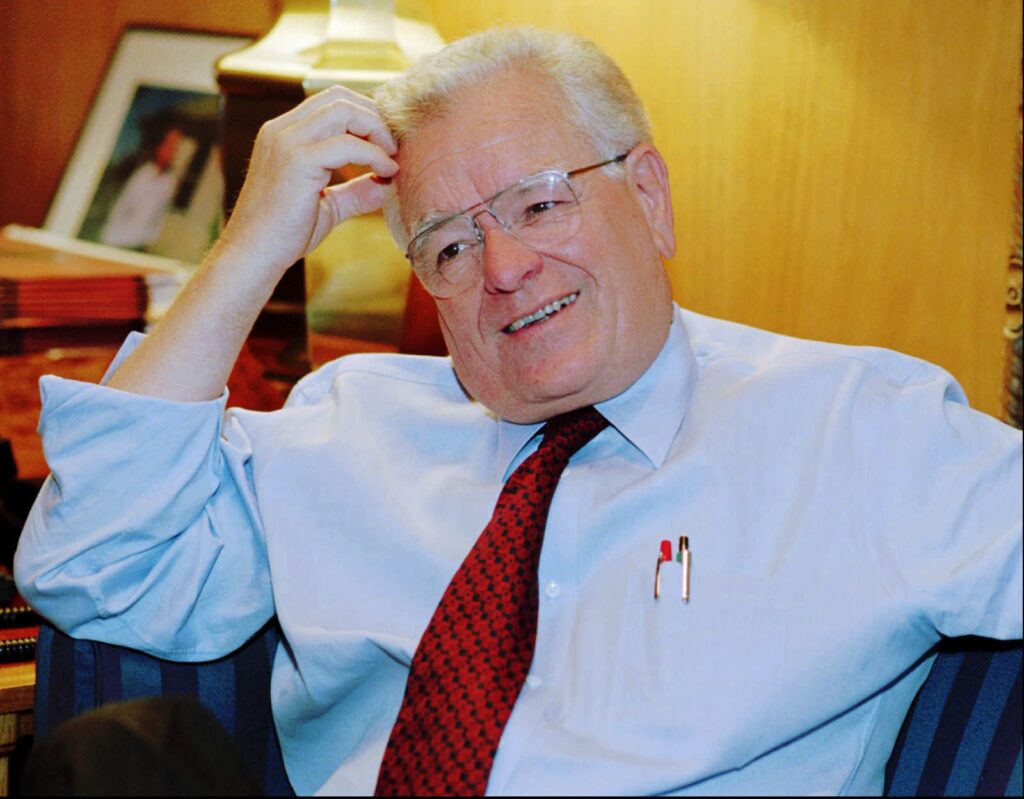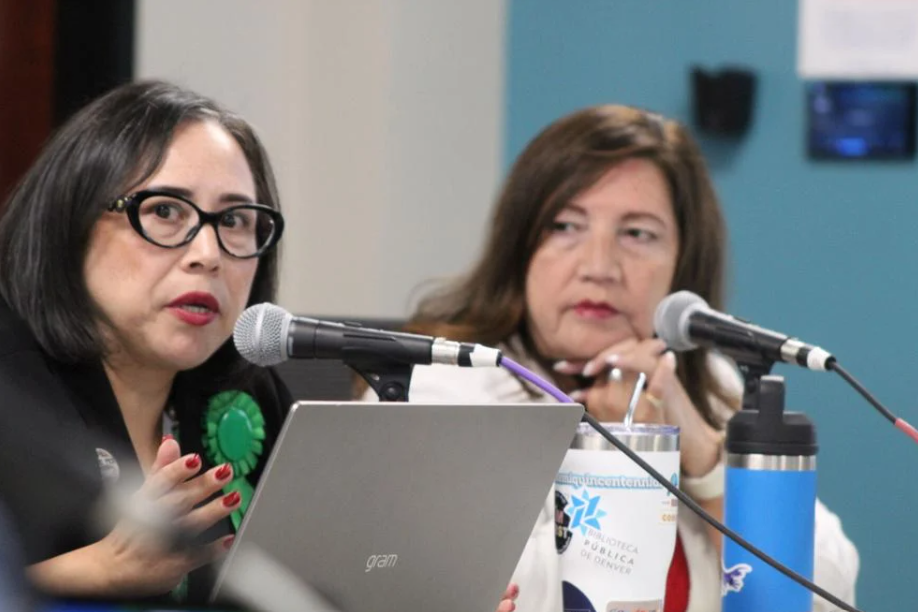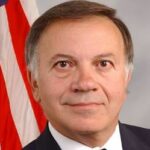An alternative look at race – and the ‘same but different’ immigration debate
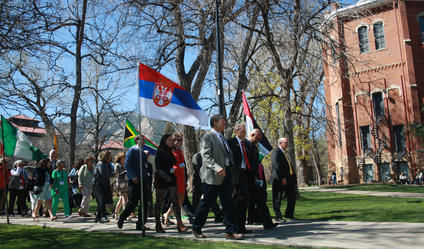
The Colorado Statesman will be covering the 67th Conference on World Affairs at the University of Colorado Boulder all week with web-exclusive updated overviews of the action each day. For live coverage throughout the day, follow our reporter Lars Gesing on Twitter @LarsGesing.
The 67th Conference on World Affairs opened Monday on the University of Colorado Boulder campus with an emphatic keynote address delivered by Pulitzer Prize-winning columnist Leonard Pitts, Jr.
Pitts urged a brimmed Macky Auditorium to rethink the way racial issues are being debated in the United States. He did not hold back his resentment of black-and-white race labels. “We regard them as self-evident, but I am here to tell you that in the absolute sense, there are not a lot of things that have less meaning,” Pitts said.
“I offer you a challenge: Define race.”
The crowd chuckled, caught off guard, as they were scouting for the colored nuances in the black-or-white discussion. Pitts didn’t stop. He brought up South African-born, light-skinned actress Charlize Theron. Which category would she fall under? African-American? White? Eyes started to open.
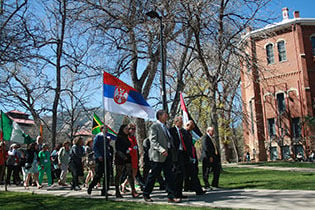
The 67th Conference on World Affairs got underway Monday at the University of Colorado Boulder with a keynote address delivered by Pulitzer Prize-winning columnist Leonard Pitts, Jr. The conference will run all week with panels on a wide variety of topics.Photo by Lars Gesing/The Colorado Statesman
Culturally, on the other hand, there are major differences in the way different ethnicities are being treated, Pitts added. He said rather than taking the issue head on and debating solutions, “We excuse ourselves from work that only grows more urgent as we don’t pay attention.” But this “laziness” doesn’t surprise him. “Reflection would be a self-indictment.”
Instead, Pitts said, people are using “weapons of mass distraction” (a nod to a pop culture axiom) to avoid confronting the issue of racism. “In what rational universe is a 17-year old boy in a hoodie more of a threat to you than predatory lending practices that may cost you your house?” he asked, as he brought up Treyvon Martin, the black teenager who was shot and killed by George Zimmerman in Florida in 2012. Pitts added more of what he perceives to be the real threats, such as failing schools, increasing national debt and a widening income gap.
Pitts’ speech was a renewed plea to stop judging people by the color of their skin. “Look at me. What do you see?” were the address’s last words, just before the whole auditorium rose to its feet.
The title for the keynote, “In a Single Garment of History,” was a reference to Martin Luther King. In his “Letter from a Birmingham Jail,” the civil rights icon famously declared: “Injustice anywhere is a threat to justice everywhere,” and followed it with, “We are caught in an inescapable network of mutuality, tied in a single garment of destiny. Whatever affects one directly, affects all indirectly. Never again can we afford to live with the narrow, provincial ‘outside agitator’ idea. Anyone who lives inside the United States can never be considered an outsider anywhere within its bounds.”
***
Earlier in the day, a panel had discussed another policy issue with impending impacts on minority populations both in the United States and in Colorado. “Immigration as Political Football” was an effort to de-mask the powers at play behind the country’s stalling movement to reform its immigration system — despite bipartisan agreement that something needs to be done.
In Colorado, a presidential swing state, one in five people is Latino. Political strategist Mary Hughes said with broad public consensus that some kind of reform was necessary, the ball is in the GOP’s court. 2016 Republican presidential hopefuls have to find a way to balance their immigration positions during the upcoming primary season.
But she also entered another variable into the immigration equation: money. Hughes said there are three sectors of the economy that profit greatly from undocumented labor: housing, hospitality and agribusiness. “We really want these industries to grow,” she said. Her argument: The feds would consequently show leniency instead of cracking down on such businesses that employ undocumented immigrants.
Hughes got support from the Heritage Foundation’s Genevieve Wood, who — after a plea to strengthen border security — acknowledged the role of big business and specifically pointed her finger to the Chamber of Commerce.
“They like cheap labor,” Wood said. “They want to keep it where it is.”
***
The issue of immigration reform re-emerged during one of the afternoon sessions, when four Beltway-insiders debated the constitutionality of President Obama’s executive action on immigration.
And just like Washington is split along partisan lines when it comes to the immigration issue, “The Audacity of Audacity: Use and Abuse of Presidential Power” presented attendees with similar, familiar trains of thought: Dysfunction in D.C. is at a historic high, communication between Congress and the White House at an equally low — and, depending on where you stand on the issue, the president was either taking lawful action in the face of a bitter legislative branch or he was unconstitutionally circumventing Congress, effectively changing laws.
Michael Franc, the former policy director of U.S. Rep. and House Majority Leader Kevin McCarthy, R-Calif., said, “This is coloring the way the relationship between Congress and the president is going forward, and it may set precedent. It should chill you to your core if you care about the separation of power.”
Political journalist Lou Dubose countered that the president made “judicious use of the executive order in the face of extreme hostility from Congress.” He added that, after a recent visit to Guantanamo, he was convinced that trying to finally close the prison would be the next item on which Obama will move forward with executive action — a decision that would be certain to set up the next round of outcries from those who see the president overstepping the constitutional limitations of his power.
***
Get social! The conference and its panels are designed to provoke thought. We want to carry that spirit forward. Join the online discussion and follow the Twitter hashtag #CWA2015. You can also watch the sessions live or on demand here (embed link: https://www.colorado.edu/cwa/webcast.html)




